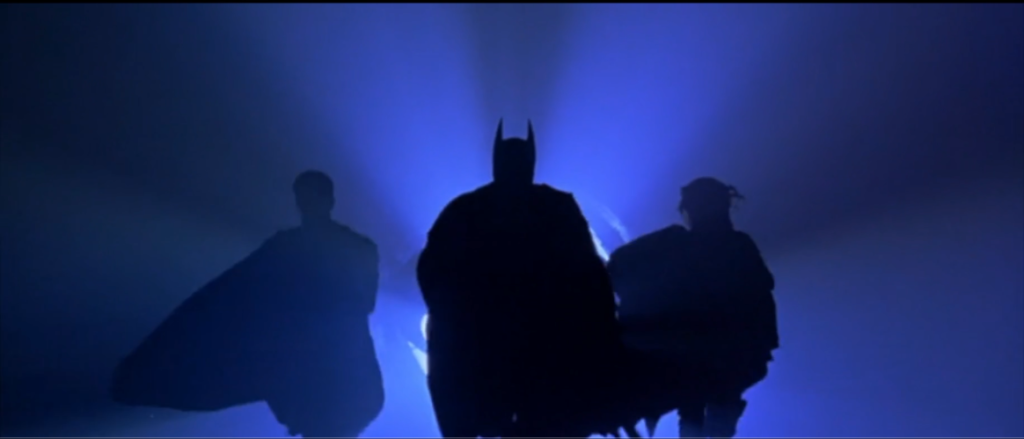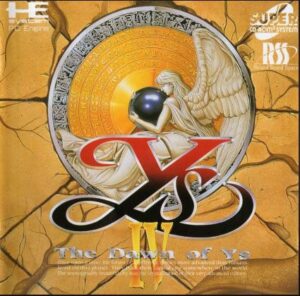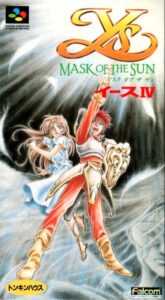Despite Batman Forever possessing a lighter tone than both of Burton’s Batman movies, the film was a financial success. With this in mind, Warner Brothers immediately greenlit a sequel for production. The result was a rather infamous film which shelved Batman’s live action career for some time. This is the universally panned Batman & Robin….

Batman & Robin was released in June of 1997 and was once again directed by the late Joel Schumacher, with Elliot Goldenthal returning to compose the score. The movie was written by Akiva Goldsman. The film starred George Clooney as Batman, with Chris O’Donnell returning as Robin. Arnold Schwarzenegger starred as Mr. Freeze, and the film also featured performances by Uma Thurman, Alicia Silverstone, and Jeep Swenson.
The plot is as follows: Crime has noticeably declined in Gotham City thanks to the efforts of the dynamic duo Batman and Robin. However, it isn’t long before new villains arise to threaten Gotham once more in the form of Mr. Freeze (brilliant scientist turned frigid commando), Poison Ivy (radical environmentalist turned toxic femme fatale), and associate Bane. Batman and Robin must not only combat these new threats, but also strengthen their own teamwork, for if they can’t work together Gotham is doomed.

On paper, the setup for Batman & Robin seems promising, but the film suffers from numerous issues. Before we get into those, let’s at least look at the (semi) positives. Goldenthal’s score isn’t exactly top of the line, but it is a serviceable supplement to the action on screen. With that in mind, aside from the main theme, I would be hard-pressed to point out a track by memory alone. The score is very atmospheric in the sense that it provides appropriate background noise, but it is not very memorable on its own.
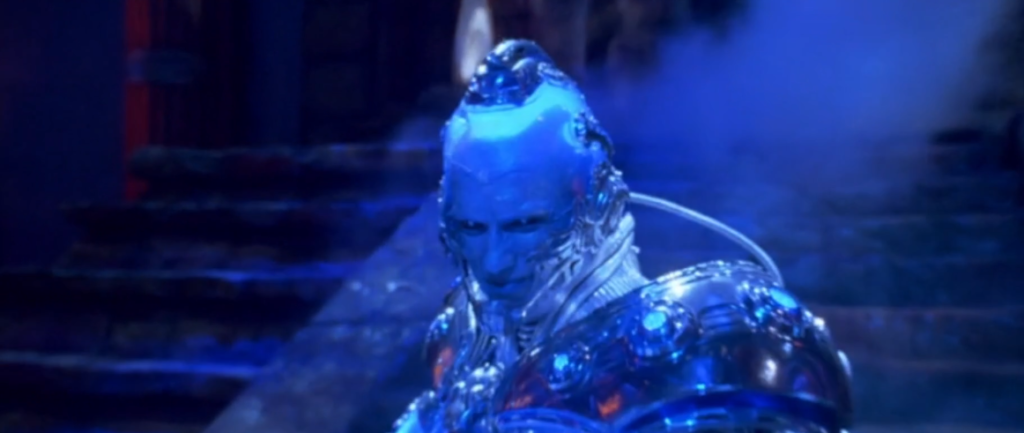
While I don’t have particular issue with the score, my issue with this film lies in everything else. The film once again makes heavy use of CGI, even more so than Batman Forever. Effects are used generously and date the film considerably. We’ve come a long way from the entirely practical sets of Batman 1989. Batman Returns and Batman Forever made sparing use of these effects, while this film overuses them.

The performances within Batman & Robin leave a lot be desired as well. Given a better script, I believe George Clooney could have been a great Batman. However, his performance comes across as very surface-level and lacks depth. Similarly, Victor Fries (aka Mr. Freeze) is a tortured, complicated soul in the comics, but this film wasn’t interested in exploring the man behind the frost-themed suit. What we got instead was a one-dimensional villain whose most memorable feature was his arsenal of ice-themed puns. Like Clooney, Arnold is a great actor who is underutilized in this project. Uma Thurman’s rendition of Ivy is rife with sexual humor that is both obvious and cringeworthy. And the less I say of this film’s interpretation of Bane the better off we all will be.
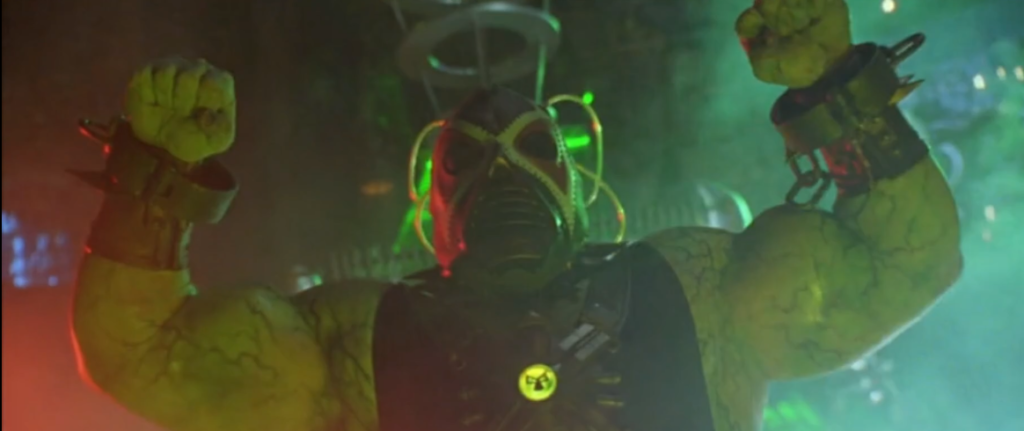
So, the score is serviceable, and the performances are lacking. But when I watch a Batman movie, what I’m really hoping will land is the tone, and that is where Batman & Robin once again fails. While Batman Forever was lighter in tone than the Burton movies, it still felt like a Batman movie, maintaining a certain level of mystery and uneasiness. Batman & Robin more often resembles a comedy parodying Batman than an actual tense adventure. Common defenses for this movie state that it is trying to replicate the tone of the Adam West series, which was famously lighthearted and got away from the original spirit of the Batman comics. However, Batman & Robin is part of a series of films that was supposed to bring Batman back to his darker comic book roots. The tone of Batman & Robin doesn’t mesh with the Burton films in this series or even Batman Forever. When I laugh at this movie, it is for the wrong reasons. That being said, Batman & Robin occasionally has moments where it tries to land emotional beats, but these moments are few and far between and ultimately feel out of place in the movie.
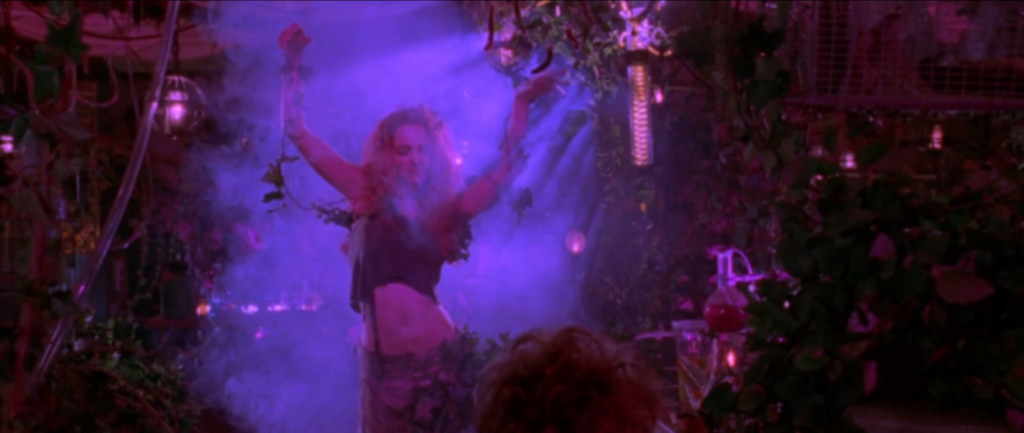
The core issue with Batman & Robin is that it just doesn’t understand how to be a Batman movie. It shows a complete disregard for its established film continuity and betrays the tone that Burton and even Batman Forever showcased. Batman & Robin is a studio film in the worst way possible. It was not made to tell a story, but rather to generate profits from box office and merchandise sales following the profitable Batman Forever. Joel Schumacher, the producers, and even the stars of the film have publicly spoken out about this film’s production, highlighting the fact that it was made poorly for the sake of merchandise.
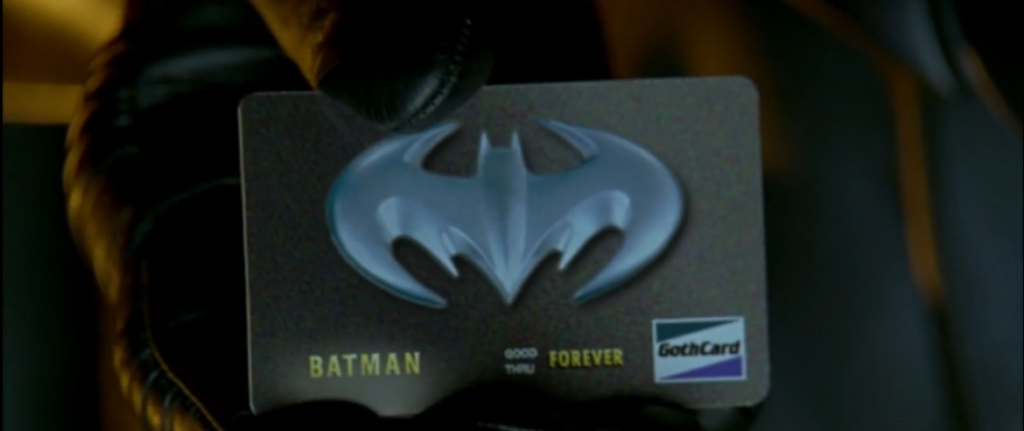
Batman & Robin grossed $238 million, returning a profit, but it was also the least profitable of the films produced in this continuity. Due to the overwhelmingly negative feedback the film received, this would mark the final Batman movie within this continuity. Two more movies had originally been proposed, but they were cancelled for fear that they would meet the same fate. This was also the last live action Batman film until Batman Begins (2005). This film even affected Batman’s animated projects. The Batman animated movie Batman & Mr.Freeze: SubZero was slated for release in 1997, but the backlash from Batman & Robin made Warner Brothers push back the release to 1998 to create more distance between the projects.

On a very serious and unfortunate note, this was the last Batman film that Bob Kane, co-creator of the Batman character, saw before passing away. It is a shame that all the work that went into updating Batman’s film presence for the modern era was overshadowed by a horribly confused film that completely misunderstood what people enjoyed about Batman. Comic book movies weren’t exactly viewed with the most credibility in the 90s, and this film certainly didn’t help matters. As a Batman movie, this film fails. I recommend staying far away from it.
